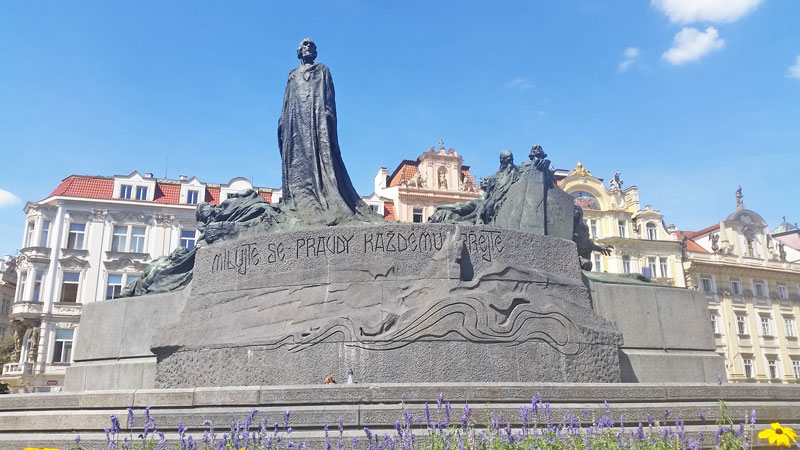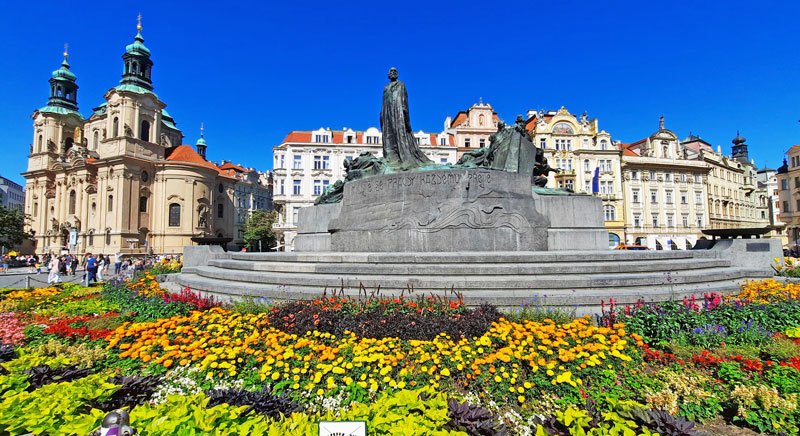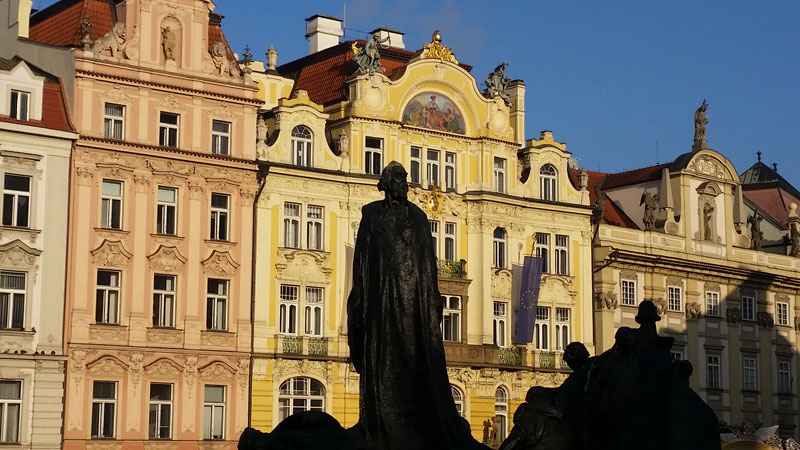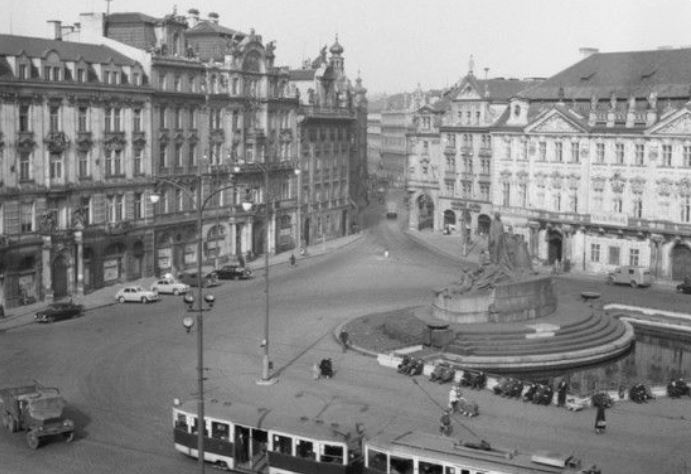Jan Hus Monument
The period from 1850 to 1918 is known as the Czech National Revival. All aspects of “what it was to be Czech” from an ethnic, cultural, political and religious point of view were being investigated and highlighted. Famous Czechs of the past were being honoured and by the early 20th Century it was clear that the power of the Catholic Austro-Hungarian Empire was waning. What better than to promote a religious figure, one who sought not the end of Catholic religion but a reformation, a dissident who fought the fight against the corrupt and powerful. This was palatable both for staunch Catholics who had seen the 19th Century reformations and for Hussites (Presbyterians) who had fought for the “Czech” version. And so the time was right to pick the martyr Jan Hus. The story of the Jan Hus monument is included in the Old Town and Jewish Quarter Walking Tour.

Jan Hus Monument – Design, Build and Payment
The original plans for the Jan Hus Monument go all the way back to 1891 but were never implemented. A second competition in 1900 saw the most famous sculptors and architects of the day put forward their ideas and the winner was sculptor Ladislav Saloun. His victory was probably because the idea encompassed not just Jan Hus but also the wider Hussite movement. This was no small project. Leading Czech Revival characters of the day set up the “Association for the Construction of a Memorial to Jan Hus” and then went out to raise the money to pay for it by public donations.

Although the foundation stone was laid in 1903, the elliptical sculpture granite base wasn’t finished until 1911. So what we can read into that is that there were design changes probably related to the position on the square that were resolved in 1911. Ladislav Saloun had to build an entirely new studio just to house the project. It’s a hollow structure made from bronze plates and it considered to be of Art Nouveau style.
Jan Hus Monument – Interpretation

There are primarily 3 aspects. As you look at the design from the front then the first part is on the left with the large statue of Jan Hus. He is looking at the Church of Our Lady Before Tyn, a Hussite Church during his life but he is surrounded by characters from the Battle of White Mountain in 1620 two hundred years after he had died and part of the Thirty Years War. The text at the front roughly translates as “You love the truth that everybody desires” and was part of the original monument.
On the right is a group of people representing the Hussite movement standing behind a shield. If you look carefully you’ll see that the shield has a chalice on the front which is their symbol.
Finally it’s “Rebirth” but you can’t see that from the front. If you go around to the back you’ll see the woman and infant baby representing the rebirth of the Czech Nation. The text on this side was cut into the stone in 1926, 8 years after Czechoslovakia was formed (11 years after the monument was unveiled) and it translates as “I believe one day your independence will return”. Probably best not to have put this on at the time as Prague still came within the Austro-Hungarian Empire.
Jan Hus Monument – The Location
The location of the monument was always in question. Wenceslas Square, Little Square, Bethlehem Square and the Old Town Square were all possible locations but finally it was decided that the Old Town Square would be chosen. This made sense because for centuries the Church of Our Lady Before Tyn was an Utraquist or Hussite church and in 1911 plans were already being implemented for the 1621 Memorial at the Old Town Hall. Placing the Jan Hus Monument on this part of the square also resolved two other issues in that firstly it covered the spot where the public hanging gallows had historically been located and secondly it balanced the square opposite the Marian Column.
Jan Hus Monument – Unveiling
For such a huge construction the Jan Hus Monument had no grand opening ceremony. July 6th 1915, the 500th anniversary of the death of Jan Hus came and went without fanfare and only an official signing ceremony at the Old Town Hall documents the fact that it was unveiled on that day. This was during the early stages of the First World War so they said we’ll have the celebration later. Then came Czechoslovakia, the depression, then WW2, then Communism. We’re still waiting for celebration day but we do get July 6th as a State Holiday.
Something Extra

In 1946 a water tank was excavated into the Old Town Square right in front of the Jan Hus Monument to provide an additional water source for the city fire brigade. It was backfilled in the 1970s. Photo Credit: Cernobila Galerie
The Jan Hus Monument was also the scene of a pipe-bomb explosion in 1990 when tourists were injured. Nobody was ever arrested or charged but read my Prague Bomber post for the larger story.
Something Related or a Few Minutes Away
Art and Culture – Za Pravdu Artistic Memorial
Art and Culture – Kinsky Palace (National Gallery)
Art and Culture – Idiom (The Book Tunnel)
Attraction – Church of Our Lady Before Tyn
Attraction – House at the Stone Bell
Attraction – ST Nicholas Church Old Town
Activity – Prague City Walking Tour
Activity – Old Town and Jewish Quarter Walking Tour
